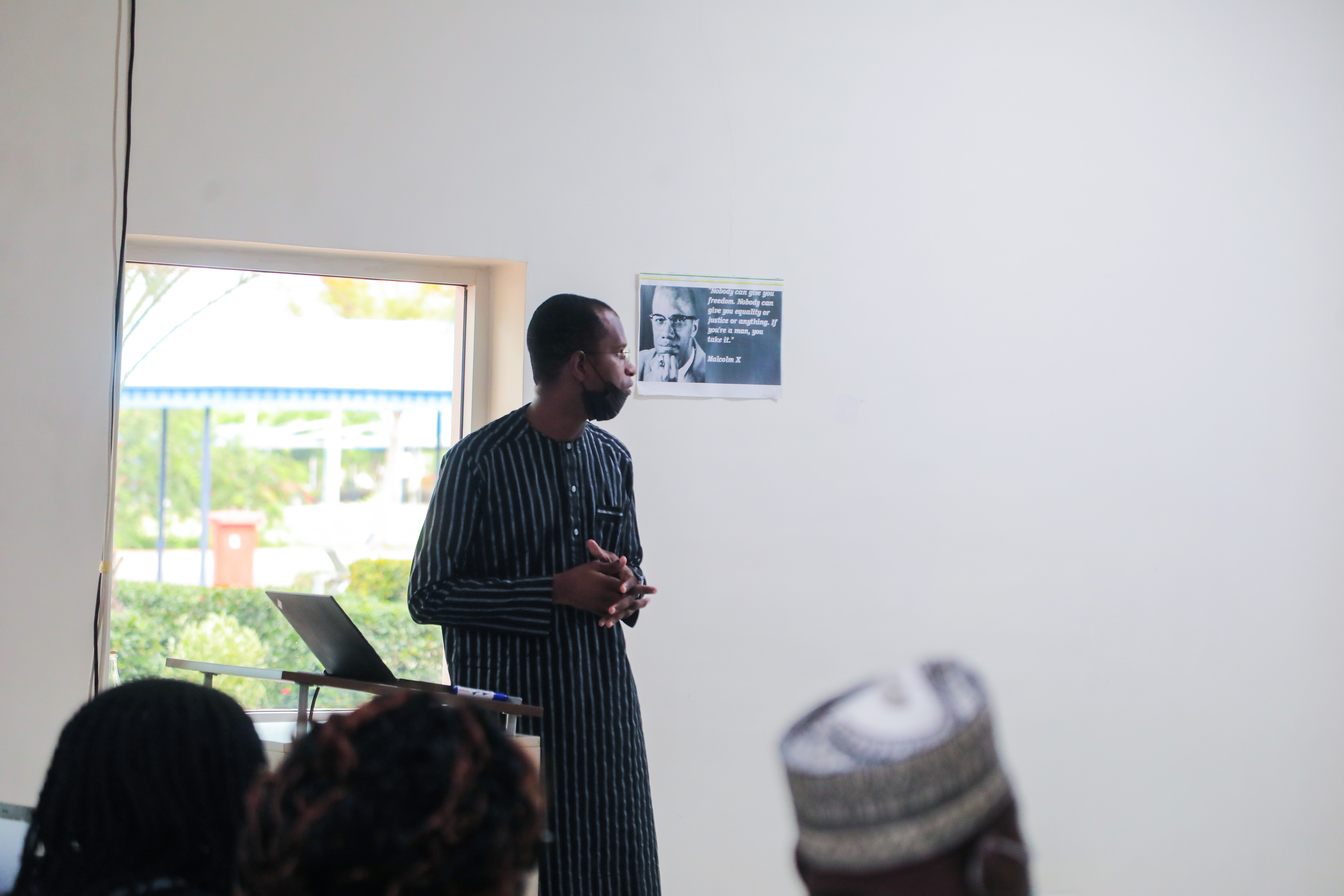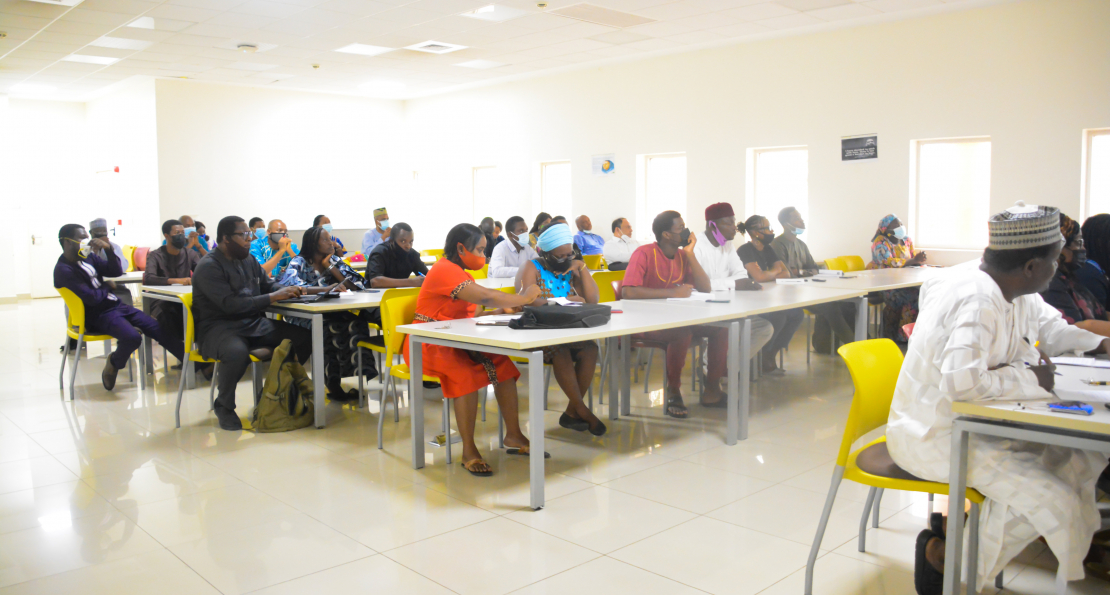AUN’s Academic Planning & Quality Assurance (APQA) Department hosted a grant proposal writing workshop on Friday, June 4, 2021 at the 24hrs section of the Robert Pastor e-Library.
Associate Professor, Natural & Environmental Sciences, Dr. Jennifer Tyndall formally welcomed an impressive turnout of faculty, staff, and students to the workshop. She explained the significance of the seminar.
"There is so much to be done in terms of research especially in this part of the world. The northeast is a virgin area. People come in from outside to do research. We as the catalyst are at the centre of research. This could be a hub for the Northeast. In terms of funding research, project, and also the hub for Borno, the base can be here."
Borno state is the epicentre of the Boko Haram crisis in Nigeria. Yola, which is home to the American University of Nigeria is 402 kilometres away from Borno state and is safer. Dr. Tyndall has researched the humanitarian crisis in Borno from her base in Yola.
"I collaborate with the Atiku Institute in my research particularly on the outreach in Borno. At AUN, we are the key players, we have so much expertise. We have inter-institutional collaborations. Today's workshop is a prime example of that. Someone from Chemistry, someone from Natural & Environmental Sciences working together to give information about grants."
Dr. Tyndall is the Coordinator of the Grants, Research & Academic Development Unit of the APQA.
Assistant professor of Petroleum Chemistry, Dr. Mohammed Aminu presented at the workshop. Dr. Aminu, who has a wide range of experience in energy demand and carbon reduction, defined a grant as a conditional gift that can be utilized at universities, research institutes, and national laboratories.
"In Nigeria, we need to think about transcending universities for research. I was one of the resource persons at the Nigeria Economic Summit 25th anniversary which was a round table discussion that focused on incentivizing investment in research and development in Nigeria."
"We need a national focus on research because there are funds and space which universities don't have. Think of national laboratories in Mexico where atomic bombs were conceived, we need a multidisciplinary approach to problem-solving."
Dr. Aminu cautioned participants not to be discouraged if their first grant applications are denied. "Rejections by themselves are not bad, for any funding agency many applications are rejected. I read somewhere that in Tetfund, 90% of drafts submitted by Nigerian academics are rejected. That is not a problem, if I were an executive secretary at Tetfund, 10% of applications accepted are fair enough. Nobody says research is easy. All academics should write proposals. A rejected proposal is worth a fortune; I say this because when proposals are rejected there should be reasons for the rejection; the success rate is higher for proposals submitted the second time."
"When I researched my Ph.D., one of the academics said that 50% of the problem for scientists lies in communication. Ideas need to be written down. Then invite colleagues to help you read your drafts, collaborating with the top player as well is key."
One of the participants at the workshop Dr. Usman Mohammed Dada said although he just retired as a permanent secretary, he is still interested in research.
"The workshop was a wonderful lecture. I commend the organizers of the workshop and the presenter. It is timely, valuable and a remarkable development," said Dr. Usman Dada.
With the impressive turnout, the APQA is optimistic future seminars will be equally engaging.
"We are planning for the next session to be focused on budgets. Based on the turnout today we will probably have it next week. One of the key factors to consider is how to spend the money once you win a grant. The funding agency needs to know, are you capable of organizing so you don't spend everything within the first week? They need to know you can set up a clear and organized budget. It goes hand in hand with your research proposal”, said Dr. Tyndall.
As Coordinator of the Grants, Research & Academic Development Unit, Dr. Tynadall is responsible for leading initiatives for collaborative research efforts, workshops, grants sourcing, dissemination to relevant schools, and in-service training at AUN.

Dr Aminu Speaking at the Event
Reported by Blessing Gabriel


